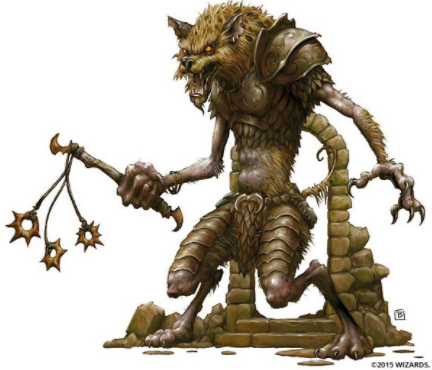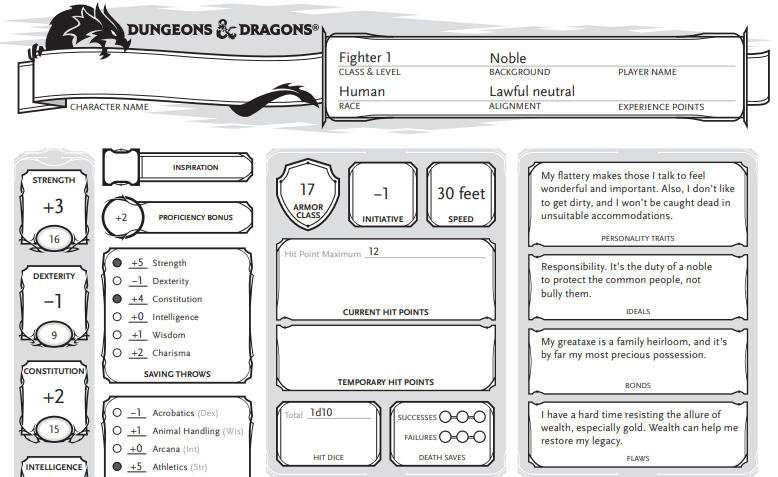Tips for managing your first campaign.
Dungeons & Dragons is magnificent. The granddaddy of all tabletop RPGs has endured for decades because of the amazing stories people of all ages have told over the physical and digital tabletops surrounded by friends. Getting started, however, can be a terrifying thought, especially for the Dungeon Master (DM).
After all, you are the world, the NPCs, the enemies, the weather, the cities, the politics and the stories that your party of adventurers will engage with. There are many in depth, informative, lore-rich guides to starting your journey to DM mastery.
This isn’t one of them.
These are five quick tips that can get you playing the game faster and working out the rest later on, because playing is always the best way to learn.
Looking for the Players’ Edition? Check that out here!
Learn The Essential Rules – Don’t Try To Learn Everything
When starting out your DM journey, one of the most daunting aspects can be the sheer amount of rules and options available for every type of interaction. If you can think of a possible scenario, from combat atop a mountain to the subtleties of government politics, there is most likely a rule or guide to navigating that situation.
Don’t fuss over learning everything.
Some rules are so situational that time spent learning them could be better spent thinking of fun stories and interesting characters.
The rules you will absolutely need to know are the flow of combat and what skill checks to make characters roll to achieve certain results.
Get those nailed down and 90% of your session will run smoothly and if you simply communicate to your group that you need to clarify a more specific rule, they will be more than accommodating. If they do give you lip, just kill their character in a spike pit.
Erm, don’t actually do that last one.
| Essential Rules Flow of Combat In each turn of combat, a character can do the following: An Action – typically an attack Move Action – moving around the field, the movement speed on the sheet indicates how far they can move, typically 30ft/6 squares Bonus Action – much more situational depending on the characters class, but can include drinking a potion or changing weapon Barring specific circumstances which will be written on that ability, these actions can happen in any order. For example, a character could move 15ft (3 squares), hit an enemy with an attack action, move another 15ft away and drink a potion with their bonus action. There are, of course, many other actions a character can take during a round but the golden rule to remember is this: 1 turn = 6 seconds. If a character is trying to write a book, wax lyrical about global political affairs whilst hitting Gnolls in the face with a battle axe, ask them simply “can you do it in 6 seconds”. The answer is usually no and then they simplify their turn. Skill Checks When a character is out adventuring, there will be points where a skill check is necessary. On a character sheet, there are 18 (yes, E I G H T E E N) different skills available to use: (DEX) Acrobatics – How agile and nimbly a character will backflip off of a building. (WIS) Animal Handling – How good a character’s “here kitty kitty” is when petting a stray owlbear. (INT) Arcana – Identifying if there is magic about. Recalling if said magic will blow your brains out. (STR) Athletics – How good you are at arm wrestling and jumping over ravines. (CHA) Deception – Noooooooooo I didn’t eat the last of the cookies *looks shadily* (INT) History – Recalling information about famous peoples and events. Good at pop quizzes. (WIS) Insight – Being able to recognize lies or the true intentions of people (spoilers – they usually want to kill you). (INT) Investigation – How good you are at being Sherlock Holmes. (CHA) Intimidation – Oh no, you WILL be giving me the last cookie *cracks knuckles* (WIS) Medicine – Oh I see the problem – you’re bleeding out! Let me stop that. (INT) Nature – Recognizing if this forest is actually a forest or just a series of angry animated trees about to smash you through the floor. (WIS) Perception – How keen your senses are, if you can see anything suspicious, or hear that group of bandits about to rob you. (CHA) Performance – How good you are at dazzling a crowd of paying punters, or distracting a guard whilst the rogue steals some valuable evidence. (CHA) Persuasion – C’mon, you don’t really want that last cookie, just give it to me! (INT) Religion – Why yes that is the sigil of Tiamat, the goddess of all chromatic dragons. Yes, that does mean we’re about to die if we don’t run away! (DEX) Sleight of Hand – How good you are at picking locks, stealing coin purses, and performing the sandbag trick from Raider Of The Lost Ark. (DEX) Stealth – How sneaky sneaky you are. (WIS) Survival – How good you are at not dying from frostbite or starvation out in the wilds. When a character attempts to do something, try to think of what skill that best associates with (even better, ask the player what they think) and get them to roll. The higher the score, the better the result! |
If You Don’t Like A Rule – Don’t Use It!
Speaking of rules, it’s worth remembering that there are some rules in the Dungeon Masters Guide that might not suit your adventuring party, seem unnecessarily confusing or make situations more cumbersome and slow. The DMG is nothing more than what it says it is – a guide.
At the end of the day, D&D is all about creating a shared world for you and your friends to explore and have fun in. Rules are important, lest a particularly savvy bard tries to break the whole game, but if a rule is really hampering the play style of the group or is just boring – don’t use it.
For example, in combat, if an enemy is within melee range (stabby stabby attacks) of your sharpshooting ranger, the ranger would then have disadvantage on ranged (pew pew) attacks. I personally find this rule useful for balancing out the powerful ranged spellcasters but if you think a character would have no problem aiming a fireball with goblins in their face – ignore it.
Your players and your own personal enjoyment always comes before stuffy rules!
Never Say No – Make Them Roll!
Dungeons & Dragons is one of the most freeing and interesting improvisational experiences anyone can have. One of the the number one rules of improv: never say no. Nothing creative or interesting can ever be born from outright rejecting ideas both within and outside of roleplaying.
Sometimes the players will make your life difficult, but that comes with the territory, and it’s your role to, well, roll with it. For example, when role-playing an interaction with a shopkeeper, a player might ask to try and intimidate the person to give them their best weapon. It would be easy to simply not allow that player to attempt that, but saying no will put said player off of engaging in the roleplay.

Instead, make that character roll a d20 and see how successful they are. If they roll low, the player has zero success but at least they tried. If they roll high, maybe they get a discount in the shop. This way, a character is rewarded for creativity whilst simultaneously not breaking the game with their antics. The easiest way to balance this is simple: the more absurd the request, the harder the dice roll.
Creating A Story Can Be Hard – Steal Ideas!
One of the most terrifying aspects of building a D&D campaign can be building the story that the players will engage in. Countless times I have wracked myself with worry wondering if it is interesting enough or if there are any glaring holes in the plot.
Don’t put yourself under too much pressure. If you’re really stumped with a story to tell, use an adventure book, pulling what you need. These books, typically ranging from $20-30 USD will give you a whole framework of stories, characters, and combat scenarios through many levels. You can then take the framework of that story and apply it to a world you have created, or take that story and set it in a pre-existing world you and your friends love, like Middle Earth or Thedas.
Speaking of stealing ideas…
Hylke Langhout breaks down lessons learned from running a 3-year-long campaign.
In my game, for example, I have taken story beats from official adventure books and mixed that with themes from Critical Role and some of my own ideas. It doesn’t matter if your story isn’t revolutionary or is something your party has experienced before, how you and your friends engage with it is what makes the story unique.
Accept That Everything Will Go Wrong And Roll With It
No matter how well you have learned the rules, prepped your story, and fleshed out your world, somehow your players will find a way to wreck it. Maybe they see your obvious and enticing story hook and instead sack it off to go to a tavern. Or maybe they absolutely obliterate a boss you thought would be deadly.
Either way, don’t sweat it.
Things will go wrong and situations you haven’t prepared for will arrive. As long as you have a grasp of the basic rules and a good idea of the story and world the players are playing it, you will be able to tell amazing and brilliant stories. There are things you can do to mitigate any glaring disasters.
For example, I have a page just full of random names, in case my party becomes transfixed by an NPC placed in a tavern, just for flavour. Just go with the flow, and marvel at how brilliantly, or ridiculously, your party interprets your story.
Remember, D&D is all about telling stories with your friends, as long as that story flows, you are doing the best you can. I recommend you have a notebook to hand and take notes though because I PROMISE you that said random NPC will somehow become important in a few hours time.
Michael is a freelance journalist and English Teacher currently living in Western Japan. He has always had a fascination with the way that music, art and mechanics form to create experiences that he usually terrible at. When he is not screaming into rogue-like voids, Michael can be found relaxing with farm-sims or saving the planet from alien invasions. When not gaming, Michael is the dungeon master of a particularly nefarious D&D group, who ruin all of his plans.
